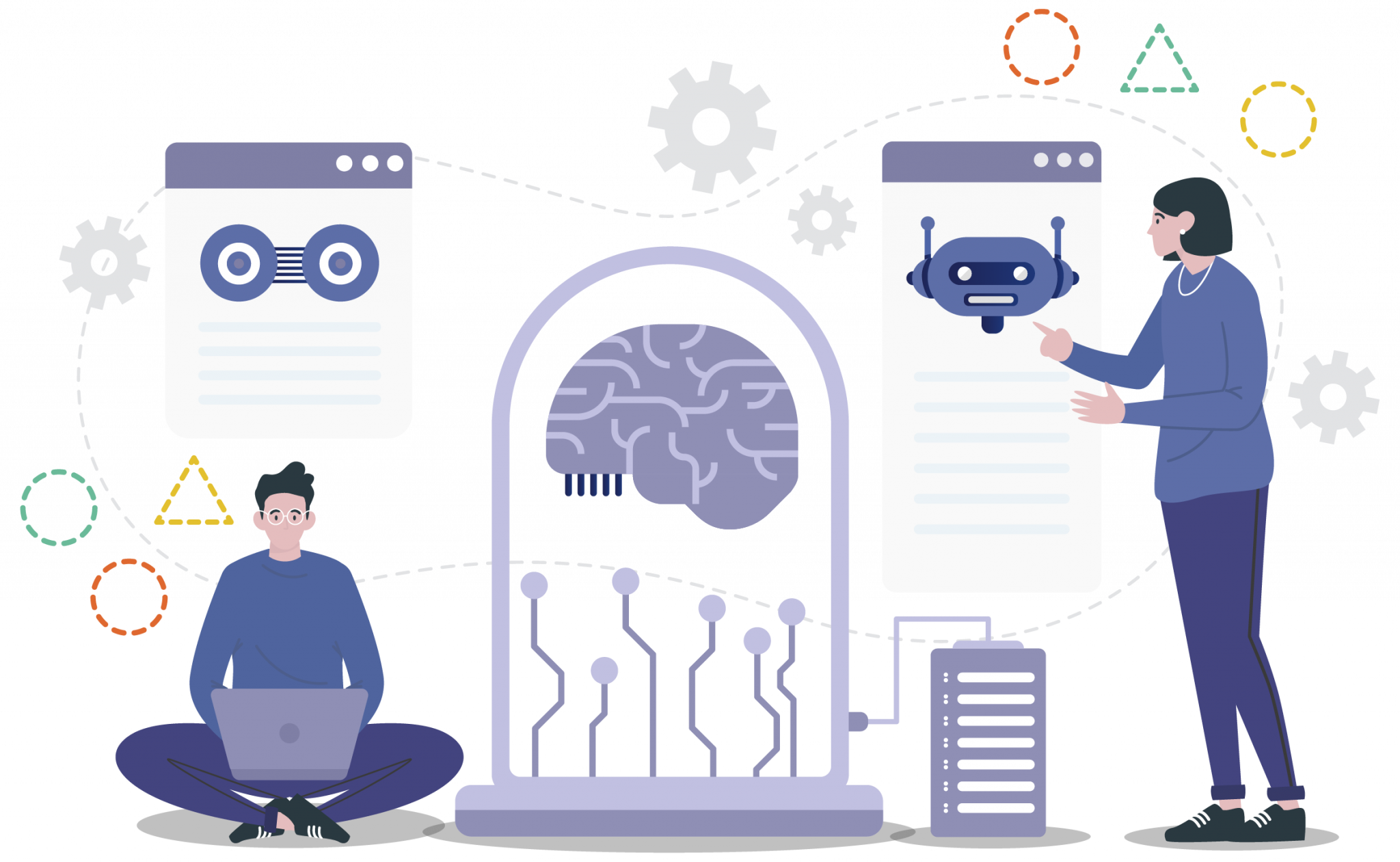In our daily life, we encounter a mammoth load of content through various internet and other platforms. We are not even aware of the flooded amount of content that we come across with. When it comes to the business world, any industry with any online or virtual presence is certainly adamant about creating and propagating fruitful content as an undeniable factor for their positive growth. Effective content personalization strategies are followed by every business firm to set up personalized web pages and execute personalized marketing plans. Customers would be pleased to explore the unique customer experience of any brand they purchase. Content personalization holds a considerable part in molding such a comfortable customer experience.
The development of machine learning (ML) is the behind the scene strength of content personalization. When we look into Machine learning vs. AI, it can be observed that machine learning is a magnificent subfield of AI, which can broadly be defined as the capability of machines to imitate intelligent human behavior. Machine learning and personalization are widespread spaces on which we can elaborate more.
Personalized Content Experience
Habitual yardsticks for a website, like the number of sessions and pageviews alone, can’t attain the goal of an individualized or personalized experience. Active content users tend to give more time to content and highly engage on particular landing pages. Intense content analytics based on the application of machine learning algorithms go beyond all traditional types of website metrics. They rely on every criterion which provides actual awareness of the active users on content engagement. Depending on the significant content engagement habits of users, ML does analyze data at a real-time basis scale to make content customization possible. Personalized web pages get shaped this way, powered by ML. According to the personal fondness, practices, and preferences of web users, AI and ML-powered tools can do wonders in the automated distribution of content.
Content Delivery And Efficiency
Optimization of content delivery includes the process of adding a personal tone to the points that are located as important to a buyer’s journey. The creation and optimization of specific content for each customer according to the context are of prime importance in personalized marketing. Machine learning algorithms help deliver the apt content at the seemingly apparent time by analyzing the data regarding website visitors’ activity history. With the backing of NLP (Natural Language Processing), ML goes through various steps like scanning the content, understanding the crust meaning per the context, indexing, and building a custom library for specific usage. Execution of all these steps by ML results in content customization or simply the automated delivery of content for web, mail, mobile platforms, etc.
Everyone’s prime priority is nothing other than content engagement while dispatching emails or any different sort of content to the targeted audience. Machine Learning possibilities are being heavily relied upon by marketers, mainly by email marketers for content customization and relevancy. ML is widely used in content personalization strategy, to fragmentize markets, and for copywriting aspects of email marketing. In short, ML advantages the efficiency of numerous emails worldwide every day.
What To Do With The Data?
ML’s advanced and basic algorithm features usher toward the optimum content personalization for users who visit various social media platforms and websites. The content personalization engines perform the activities of data segmentation, syncing, and merging, combining with data management platforms. Message recommendations, user-specific content promotion, etc., are delivered and executed as a result.
Major Examples
Machine learning and personalization have the possibilities of remarkable co-existence in the e-commerce industry, entertainment realm, etc. The following are some notable examples;
- Netflix: Netflix makes use of dynamic page metrics and does follow ML-generated recommendations based on the audience’s tastes, likes, and dislikes.
- Spotify: The trending music app Spotify employs ML-generated data to come up with personalized playlists. Their specifications based on customized content aspects include Release Radar, Spotify Radio, and Discover Weekly.
- Amazon: Prominent e-commerce platform Amazon utilizes the massive potential of email recommendations, considering it more efficient than on-site personalization.
Coming to an end, it is evident that by maneuvering the marvelous technology outbreak of Artificial Intelligence and its subfield Machine Learning, any business field can reach the goal of personalized customer experience through content personalization. And if your firm proposes a personalized customer experience, your conversion rates will likely escalate to the pinnacles.





 +91 8714 60 30 48
+91 8714 60 30 48
 + 971 44 92 87 30
+ 971 44 92 87 30




